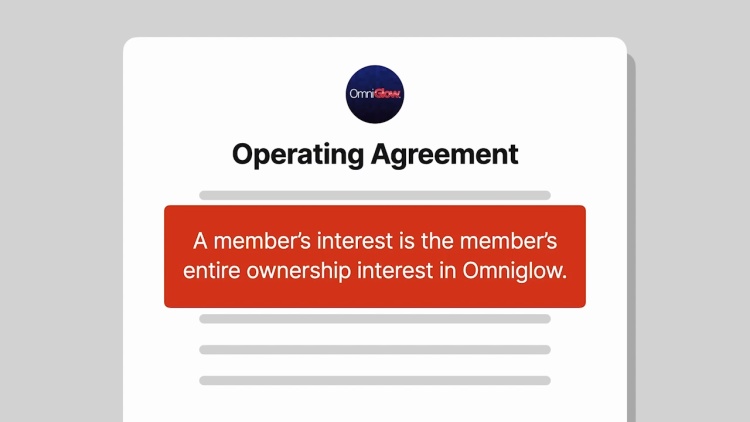Achaian, Inc. v. Leemon Family LLC
Delaware Court of Chancery
25 A.3d 800 (2011)
- Written by Mary Pfotenhauer, JD
Facts
Omniglow, LLC was a Delaware limited-liability company (LLC) with three members. Leemon Family LLC (Leemon) (defendant) had a 50 percent member interest, the Randye and Stanley Holland Trust (Holland) had a 30 percent member interest, and Achaian, Inc. (Achaian) (plaintiff) had a 20 percent member interest. Omniglow’s LLC agreement defined a membership interest as the member’s “entire ownership interest.” Section 7.1 of the agreement allowed a member to transfer all or part of its interest in Omniglow to any person at any time. Under § 7.2 of the agreement, no person could be admitted as a member after the date of the agreement without the written consent of the existing LLC members. Holland transferred and assigned its entire 30 percent interest to Achaian. Achaian sued Leemon, claiming that because they each had an equal 50 percent ownership interests in the LLC, they were deadlocked as to the management of Omniglow, and seeking a declaratory judgment and order of dissolution. Leemon moved for dismissal, arguing that Holland’s assignment of its interest only gave Achaian an additional economic interest in the profits and losses of the company, and that Achaian could not have received an additional membership interest, including voting rights, without Leemon’s consent to the assignment.
Rule of Law
Issue
Holding and Reasoning (Strine, J.)
What to do next…
Here's why 907,000 law students have relied on our case briefs:
- Written by law professors and practitioners, not other law students. 47,100 briefs, keyed to 996 casebooks. Top-notch customer support.
- The right amount of information, includes the facts, issues, rule of law, holding and reasoning, and any concurrences and dissents.
- Access in your classes, works on your mobile and tablet. Massive library of related video lessons and high quality multiple-choice questions.
- Easy to use, uniform format for every case brief. Written in plain English, not in legalese. Our briefs summarize and simplify; they don’t just repeat the court’s language.





